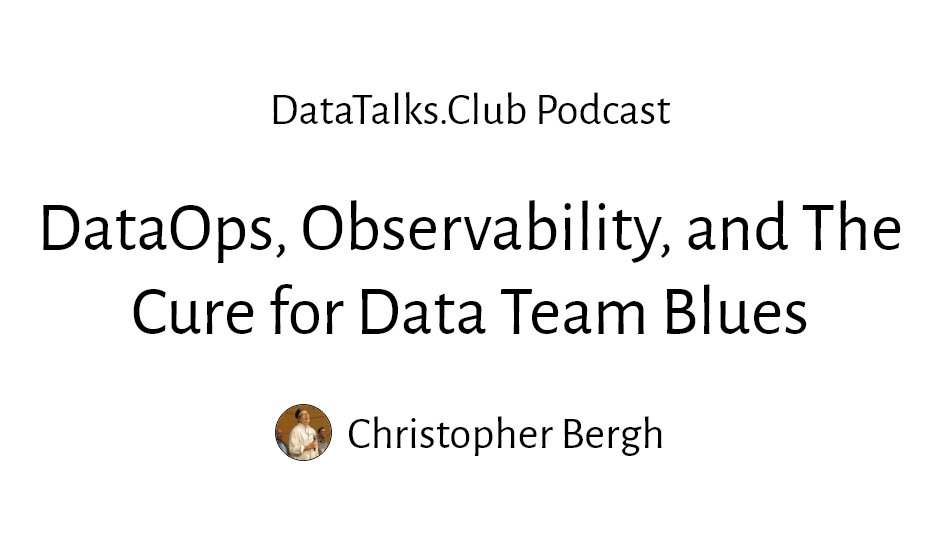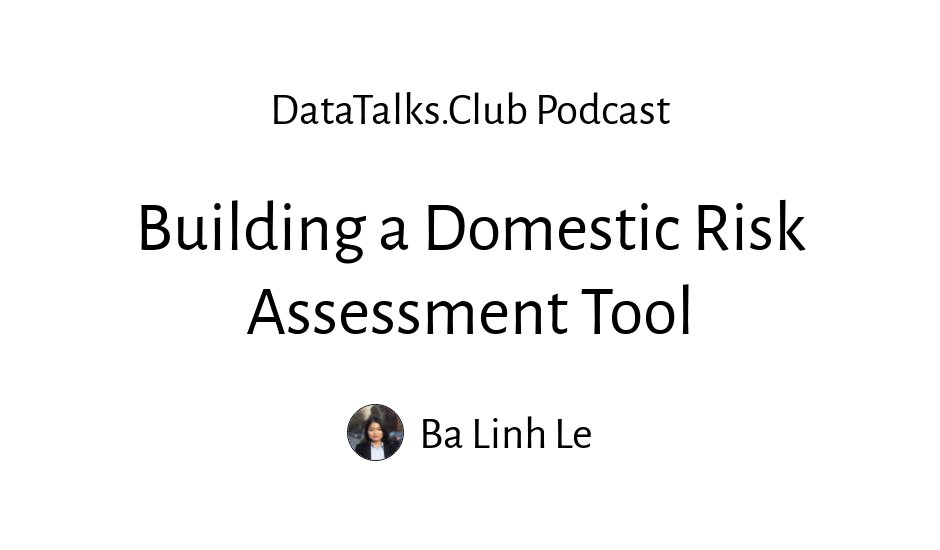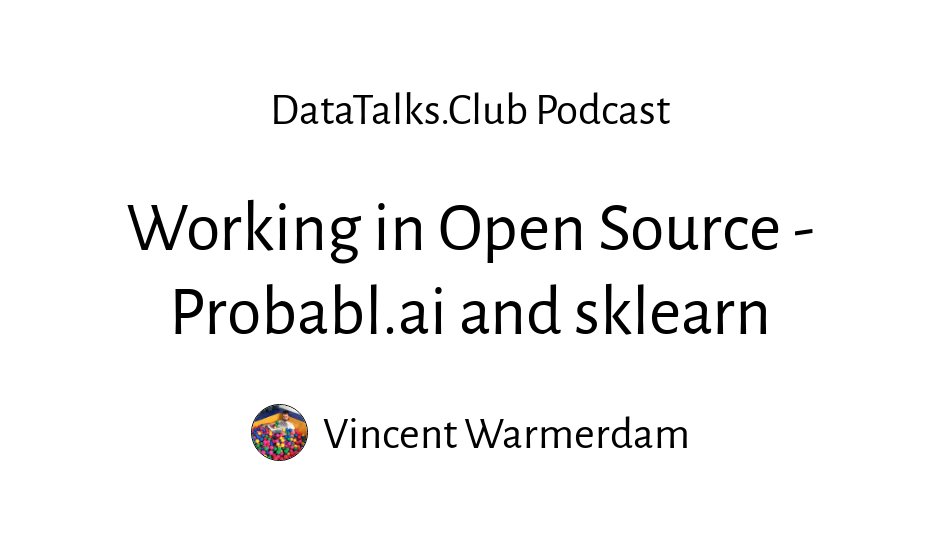Omdena Academy: Project-to-Course AI Education for Data Science Careers & Instructors | Erum Afzal
Listen to or watch on your favorite platform
Show Notes
How do you turn real-world AI project experience into repeatable courses that launch data science careers and train instructors? In this episode, Erum Afzal — lead ML engineer, Teaching Expert at Women in AI Academy, and PhD researcher in AI for teacher training — explains how Omdena Academy evolved from collaborative projects into a project-to-course model for AI education.
We cover the Academy’s shift from global Omdena projects to structured data science courses, foundational topics taught (Python, Pandas, NumPy, NLP), and the process for developing courses: instructor application, content review, delivery, and evaluation. Erum outlines access pathways—enrolling without prior Omdena membership, pathways into projects, and an open instructor pipeline—plus community and leadership development through regional chapters and sub-communities. You’ll hear about curriculum tiers (basic to advanced), boosting engagement with live sessions, and maintaining hiring integrity amid plagiarism and responsible ChatGPT use. Practical details include how to apply (Omdena.com/Omdena-Academy), scholarship and GitHub resources, and options for instructors to volunteer or monetize content.
Listen to learn actionable steps for joining, teaching, or designing project-based data science courses that prepare learners for careers in AI.
About the Guests

Erum Afzal
Erum is an enthusiastic speaker, mentor, and lead ML Engineer with a passion for Data Science and Machine Learning. She holds an MS in Information Technology from NUST, Islamabad, Pakistan. Currently, she is a researcher at Justus Liebig University, Germany, pursuing her PhD in AI solutions for teacher training. Erum is also associated with various international bodies in the field of Data Science and Machine Learning. She serves as a Teaching Expert at Women in AI Academy (Germany), where she instructs courses on Data Science and Machine Learning and leads Omdena Academy at Omdena, contributing to numerous projects and receiving accolades as part of the AI wonder girls team.
Previously, Erum taught a deep learning course at Eskewlab Philippines in collaboration with Omdena. She led the WWCode Data Science track, organizing boot camps and workshops in Data Science. Furthermore, Erum served as a Trainer at AIDA Lab, Prince Sultan University, Kingdom of Saudi Arabia, where she was a master trainer of AI courses and conducted research.
Timestamps
Transcript
The transcripts are edited for clarity, sometimes with AI. If you notice any incorrect information, let us know.
Podcast Introduction
Guest Introduction: Erum Afzal — AI for education & Omdena Academy
Alexey: This week, we'll talk about community building. We have a special guest today, Erum. Erum is a Lead Machine Learning Engineer and PhD researcher at Justus Liebig University. Did I pronounce it correctly? (1:25)
Erum: Yes. (1:44)
Alexey: Erum specializes in AI for education. She instructs at the Woman in AI Academy and leads Omdena Academy. Previously, she taught deep learning internationally and organized data science boot camps. You'll probably tell us about them. Thanks for joining us. Welcome. (1:46)
Erum: Thank you for having me. I'm excited to share what I've been doing. (2:15)
Alexey: The questions for today's interview were prepared by Johanna Bayer. Thanks, Johanna, for your help. Let's start. (2:24)
Background: Journey from Pakistan to PhD & community teaching
Alexey: Before we dive into community building, let's start with your background. Can you tell us about your career journey so far? (2:32)
Erum: I'm Erum from Pakistan. Currently, I'm based in Germany, as Alexey mentioned. I'm doing my PhD here. I come from a less-developed area of Pakistan where females are often not allowed to get an education. I'm lucky to have received an education, moved to the city, and started working with the community. Instead of just attending lessons, I began delivering workshops and courses. (2:42)
Erum: Through various networks, I got my research position at Justus Liebig University in Giessen. I was involved in a project in Germany, which this university applied for and was selected. I mentored that project and suggested offering a PhD position. They agreed and offered it to me, so I joined. (2:42)
Alexey: Which city are you based in? (4:35)
Erum: Giessen, near Frankfurt. (4:37)
Alexey: Okay, near Frankfurt. (4:42)
Erum: Yes. (4:45)
Alexey: I've never been to that Frankfurt. (4:46)
Erum: You should visit sometime. [chuckles] (4:50)
Alexey: You work at Omdena. What's your title there? (4:54)
Omdena Academy: Evolution from projects to structured courses
Erum: I'm currently Head of Omdena Academy. I started as a Lead Machine Learning Engineer, then we began delivering courses and transformed Omdena School into Omdena Academy. (5:03)
Alexey: It's amazing. It's unfortunate that women in your area can't get an education. It's fortunate you managed to do this. Hopefully, the situation changes. I'm interested to learn more about Omdena and your role there. (5:28)
Omdena Projects: Global collaborators solving real‑world AI problems
Erum: Omdena is a global community that started in 2019. Every participant is called a "collaborator." We solve real-world challenges with AI. We started with a mental assistive application in 2019, then projects like finding anomalies on Mars. Our major learning is through diverse, global collaboration. (6:04)
Erum: There are groups of 50-60 people from different backgrounds, learning together. We tackle projects with real-world datasets, which is rare in AI. Networking and learning from diverse perspectives are key. What do I do there? (6:04)
Erum: I started as a collaborator on the first project. Later, I helped with graphics and certificates. We aimed to make AI and data science courses accessible to underdeveloped communities by building courses from our projects. This helps both the learners and instructors. (6:04)
Erum: At Omdena, we provide a platform for instructors and students. After completing a project, participants can join courses and future projects. This training increases their competency and allows them to join Omdena as collaborators. (6:04)
Alexey: Was it driven by necessity when you saw participants lacking skills? Or was it a demand from students wanting to improve in specific areas? (9:40)
Project-to-Course Model: Teaching skills learned from projects
Erum: It's not 100% aligned with requirements, but we address necessary skill sets. Courses are delivered after project completion to teach how Omdena works, giving people an idea of how to handle projects. (10:19)
Alexey: From what I understood, it's about the platform and community interaction. Are there courses on basic data science, like Pandas or NumPy? (11:13)
Foundational Data Science Courses: Python, Pandas, NumPy, NLP
Erum: Yes, we now offer basic courses. Initially, it was project-based, like developing a solution for vision-impaired people in Germany. Now we have courses on natural language processing and interview preparation. (11:32)
Erum: We also had agricultural AI projects. Initially, we focused on advanced projects, but eventually, we started foundational courses due to organizational demand. Now we have a foundational data science course covering basics like Pandas and Python. (11:32)
Alexey: When you said courses start after the project, is it to teach what was learned from the project? Like understanding better by teaching? (13:12)
Erum: Exactly. You learn more by teaching and filling gaps in your understanding. (13:40)
Alexey: That's awesome. (13:46)
Erum: Yes, that's the idea. (14:20)
Alexey: How do you decide what content to teach and what courses to offer? (14:24)
Course Development: Instructor application, content review, delivery
Erum: I work as a facilitator and teach a few courses. I create courses based on my learning experiences. Instead of taking paid courses, I learn on my own, make notes, and then deliver the course. This way, I effectively use my knowledge. (14:32)
Erum: When delivering, I learn more because I have to solve problems to teach them. We have a registration page where collaborators apply to be instructors. We review their content, make adjustments, and then launch the course. (14:32)
Alexey: And the courses are free, correct? (15:50)
Business Model: Free learner courses with organizational partnerships
Erum: Yes, free for both instructors and students. Instructors don't get paid. (15:52)
Alexey: This is how DataTalks.Club works too. Free courses mean wider reach, which is amazing, right? (16:02)
Erum: True. We often discuss selling courses, but my CEO believes education should be free for students. We charge organizations, not students. (16:27)
Alexey: When organizations ask for courses, you provide them for a fee, correct? (16:56)
Erum: Yes, that's how we work. (17:19)
Alexey: That's the business model. (17:22)
Erum: True. (17:25)
Alexey: Do I have to be in the Omdena community to join a course? Do I need to do a project first? (17:26)
Access Pathways: Enroll without prior Omdena membership; pathway to projects
Erum: No. Organizations can develop courses through Omdena without doing projects. For companies, courses come first, then projects. Graduates can join projects later. (17:38)
Alexey: Let's say I'm a student interested in a foundational data science course. Can I join without being part of Omdena or a project? (19:32)
Erum: Yes, you can join an Omdena course without being part of the community. Once you graduate, you become part of the Omdena community and can join any project. (20:03)
Alexey: How do people usually become instructors? Do they approach you, or do you seek them out? (20:32)
Instructor Pipeline: Open applications and project-based recruitment
Erum: It's a mix. The link to apply as an instructor is always open. Sometimes, we reach out to interesting project teams and suggest creating a course on a specific topic. (20:48)
Alexey: At DataTalks.Club, we have free courses with a low completion rate. Do you see something similar? (21:36)
Course Engagement: Live sessions, selection process, graduation rates
Erum: Yes. Our courses are live, not recorded. We invite 100 out of 400-500 registrants due to capacity and financial constraints. Our graduation rate is about 33%. Many attend but don't submit assignments, so they don't get a certificate. (22:29)
Alexey: So, you do pre-screening to select participants. What criteria do you use? (23:49)
Selection & Motivation: Prereqs, availability, and incentive programs
Erum: We consider prerequisites, motivation, and availability. We also offer free subscriptions to learning platforms like DataCamp, which motivates participants. (24:18)
Alexey: That's interesting. How do you see the connection between teaching and creating and maintaining a community? (25:22)
Roles & Responsibilities: Teaching focus vs community management
Erum: Creating the online community isn't my main role. We have a community manager and others who handle it. My focus is on teaching. (26:40)
Alexey: You've been involved in various communities like Women Who Code and Neuromatch. What motivated you to take on leadership roles? (29:21)
Leadership Development: Network-building and taking initiative
Erum: For Omdena, I joined a project and met people who referred me to other opportunities. It was gradual. I took on leadership roles to stay connected with the community. (29:48)
Alexey: The motivation was gradual. You built your network, and more opportunities appeared. Communities have frameworks for motivated individuals to take on roles. (30:58)
Erum: True. (31:39)
Alexey: As a community manager, I want to empower people to take initiative. How do you create an environment where people feel motivated to lead? (31:43)
Community Growth Strategy: Start small and scale (AI Wonder Girl example)
Erum: In our community, we built AI Wonder Girl, starting with seven-eight girls and growing to 100+. We meet online, discuss topics, and motivate each other. Starting small and gradually growing is key. (33:03)
Erum: Small groups meeting regularly to discuss and explore topics is effective. Don't start with big aims that seem unattainable. Begin with doable tasks. (33:03)
Alexey: Like a small WhatsApp group. (35:33)
Erum: Yes. (35:38)
Alexey: We interviewed Sarah, a co-founder of AI Wonder Girls. She talked about the group and winning hackathons. (35:39)
Erum: Yes, she's a good friend. (35:54)
Alexey: For those listening, check out that episode. It was an interesting chat. (36:19)
Erum: I'll check it out. Thank you. (36:34)
Alexey: I'm a big fan of communities. They helped me a lot in my career. What do you think about their importance for career building? (36:37)
Communities for Career Building: Skill discovery and rapid learning
Erum: I'm also a big fan of using communities for career building. They provide updates and help you understand what skills are in demand. Joining communities gives you an idea of needed skill sets and helps you develop them. (37:26)
Erum: Starting your own community and teaching others is a fast track to learning. It helps you and others grow. (37:26)
Alexey: How can communities foster the creation of sub-communities and empower people to take initiative? (39:14)
Empowering Sub-communities: Regional chapters, branding, ethics
Erum: As a bigger organization, allowing people to use the community's name can help. It provides authenticity and reach. Ethical guidelines are important, but empowering people to represent the community is beneficial. (40:00)
Erum: WhatsApp groups are limited. A public page or social network can help people from the same region connect and represent the larger community. (40:00)
Alexey: I should write a blog encouraging people to start local chapters of DataTalks.Club. Anyone in our Slack can create a channel if one is missing for their area. (41:53)
Erum: Yes, and use the name for reachability and authenticity. (42:24)
Alexey: Any other tips for good community management? (42:35)
Boosting Attendance: Clear takeaways and live event value
Erum: Engagement and providing value are crucial. People need to know what they will gain from spending time in the community. Define clear takeaways for each session or activity. (42:50)
Alexey: How to compete with Netflix? Show the value of attending meetups versus watching recorded content. People need to know they'll miss out if they don't attend. (44:09)
Erum: Offer sessions with clear takeaways, like learning how to deploy a machine learning model. This can trigger more interest and attendance. (45:07)
Alexey: Any other tips? (46:28)
Curriculum Design: Basic, intermediate, and advanced course tiers
Erum: Categorize offerings into basic, intermediate, and advanced levels. This makes it easier for people to find relevant content and know what to expect. (46:33)
Alexey: We have a question from the community: Do you feel that the market is saturated with data scientists and ML engineers? (47:50)
Talent Market Dynamics: Standing out amid data science competition
Erum: I don't think so. There is a shortage of unique skills. Everyone knows data science, but competition is high. You need to distinguish yourself with unique skills to increase your value. (48:20)
Alexey: It's strange that there's a shortage, yet many people struggle to find jobs. We need to make our skills more applicable and not rely on shortcuts. (49:54)
Hiring Integrity & Tools: Originality, plagiarism, and responsible ChatGPT use
Erum: Sometimes, job applicants use plagiarized tests. Companies can't hire people who don't show originality. The more access to resources we have, the lazier we've become. (50:56)
Alexey: With ChatGPT, I'm so lazy now. (51:39)
Erum: Yes. (51:41)
Erum: It's an awesome tool, but you can't learn by just copying. You need to use it smartly and do the work yourself. (51:52)
Alexey: How can someone become an instructor at Omdena? (52:11)
How to Apply: Becoming an Omdena Academy instructor (Omdena.com/Omdena-Academy)
Erum: They can apply on OmdenaAcademy.com. (52:27)
Alexey: How do you spell it? (52:33)
Erum: I can share the link. (52:36)
Alexey: Google Omdena Academy. The first link is Omdena.com/Omdena-Academy. You'll find options to apply as a student or instructor there. (52:41)
Alexey: What can you recommend to a freelancer wanting to start teaching in AI? Is it possible to apply to Omdena? (53:11)
Monetization Options: Volunteer teaching vs selling courses on platforms
Erum: For Omdena, we focus on capacity building for collaborators who have completed projects. I recommend joining an Omdena project first, learning the process, and then applying to teach. (53:23)
Erum: Teaching is mostly volunteer-based since we offer free courses. However, it helps you build a good structure and potentially sell your course on other platforms like Coursera or Udemy. (53:23)
Alexey: Any resources that help women access education on AI? (54:29)
Access & Scholarship Resources: Courses, GitHub projects, and women‑focused support
Erum: Join AI communities. There are courses available, and sometimes scholarships on platforms like Coursera. Learning through projects on GitHub is also valuable. (54:49)
Alexey: Teaching friends can also help you become proficient. This advice applies to any gender. There are many courses on Coursera, Omdena, and DataTalks.Club. (55:48)
Alexey: Before we finish, do you have any resources on teaching, community building, or anything else you find interesting? (56:16)
Recommended Readings: AI ethics newsletter and curated resources
Erum: I prefer newsletters. I'm part of the Stanford University Law Department's AI-powered law school newsletter. It's important to understand how to ethically implement AI. I'll share the link later for the description. (56:39)
Episode Wrap-Up & Closing Remarks
Alexey: We'll include it in the description. Thanks for sharing your knowledge and experience. Thanks to everyone for joining and asking questions. That's all for today. (57:46)
Erum: Thank you for having me. (58:25)
Alexey: Enjoy the rest of the week and goodbye. (58:28)


